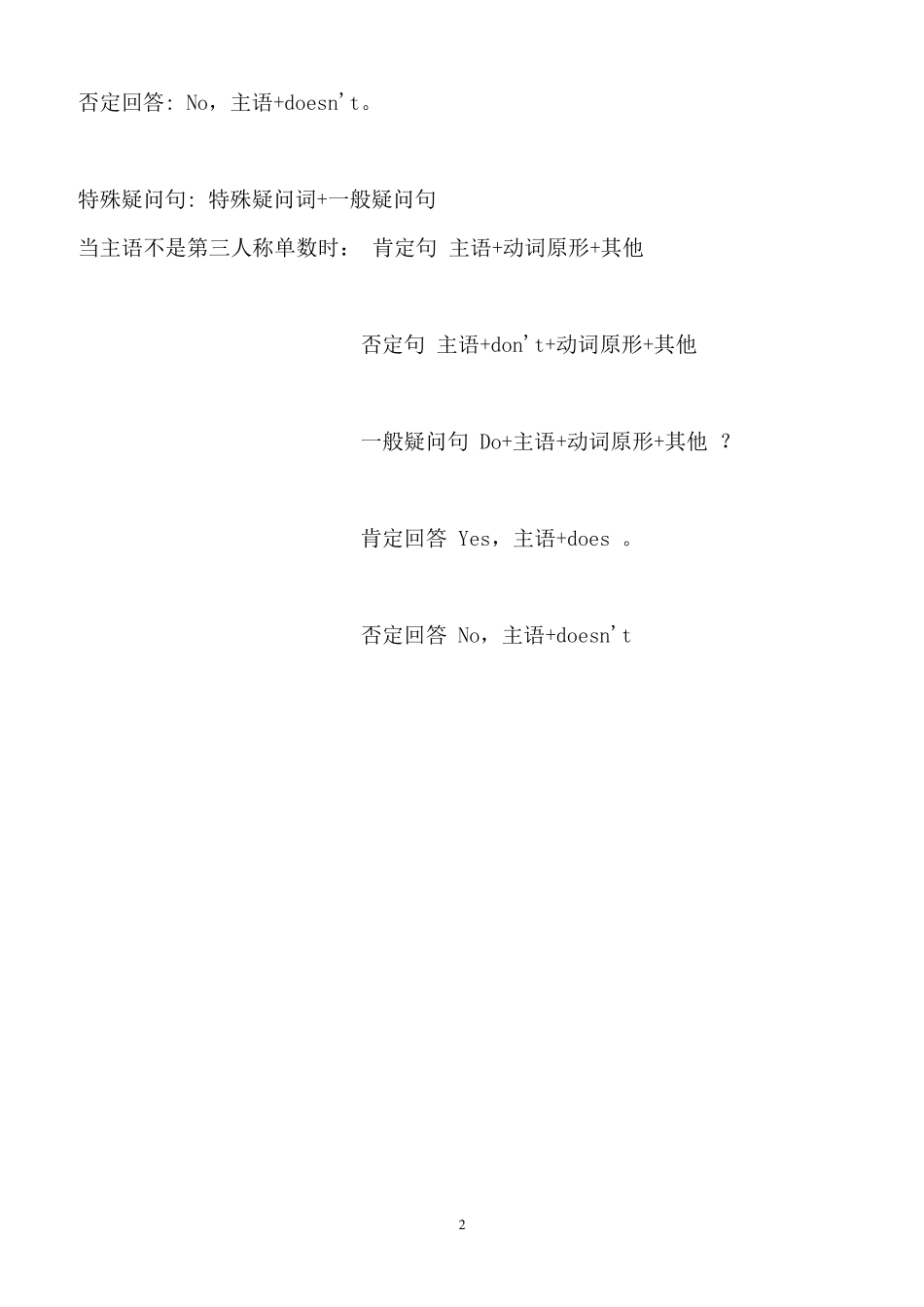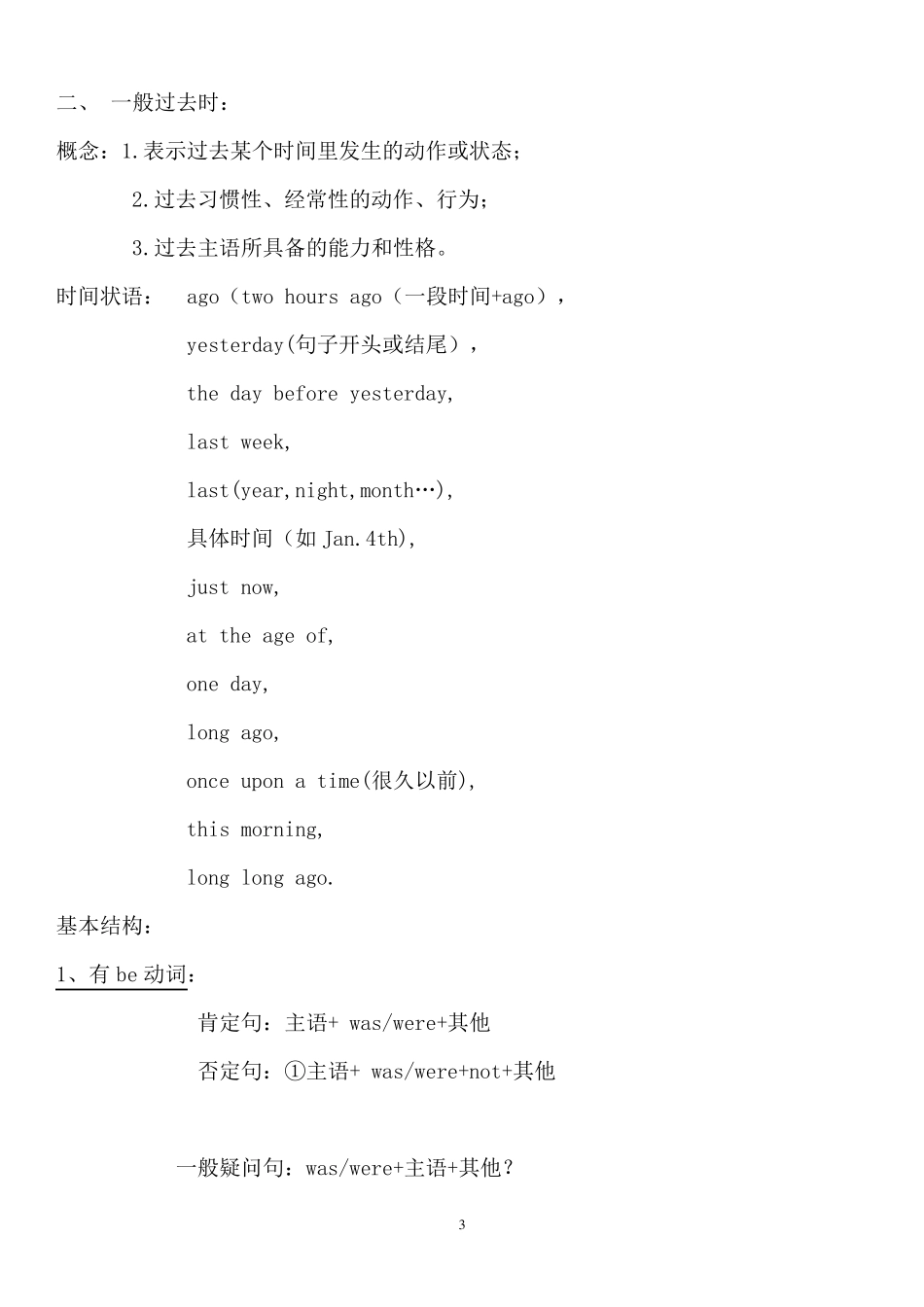1 专题一:时态 一般现在时: 1.概念:经常、反复发生的动作或行为及现在的某种状况。 2.1) 经常性或习惯性的动作,常和时间状语连用。 时间状语: every…, sometimes, at…, on Sundays He often wakes up at 7 every morning. 2) 客观真理,客观存在,科学事实。 The earth moves around the sun. Shanghai lies in the east of China. 3) 表示格言或警句中。 Pride goes before a fall.骄者必败。 4) 现在时刻的状态、能力、性格、个性。 eg. I don't want so much. Ann writes good English but does not speak well. 3. 句式结构: 当主语是第三人称单数时: 肯定句: 主语+动词的第三人称单数+其他 否定句 :主语+doesn't+动词原形+其他 一般疑问句: Does+主语+动词原形+其他 肯定回答: Yes,主语+does 。 2 否定回答: No,主语+doesn't。 特殊疑问句: 特殊疑问词+一般疑问句 当主语不是第三人称单数时: 肯定句 主语+动词原形+其他 否定句 主语+don't+动词原形+其他 一般疑问句 Do+主语+动词原形+其他 ? 肯定回答 Yes,主语+does 。 否定回答 No,主语+doesn't 3 二、 一般过去时: 概念:1.表示过去某个时间里发生的动作或状态; 2.过去习惯性、经常性的动作、行为; 3.过去主语所具备的能力和性格。 时间状语: ago(two hours ago(一段时间+ago), yesterday(句子开头或结尾), the day before yesterday, last week, last(year,night,month…), 具体时间(如 Jan.4th), just now, at the age of, one day, long ago, once upon a time(很久以前), this morning, long long ago. 基本结构: 1、有 be 动词: 肯定句:主语+ was/were+其他 否定句:①主语+ was/were+not+其他 一般疑问句:was/were+主语+其他? 4 肯定回答 Yes,主语+was/were。 否定回答 No,主语+wasn't/weren’t 2、有行为动词: 肯定句:主语+动词 过去式+其他; 否定句:主语+didn't+动词原形,; 一般疑问句Did+主语+动词原形+其他? 肯定回答 Yes,主语+did 。 否定回答 No,主语+didn't。 动词变化规则: 规则变化: 1.直接加ed:work——worked look——looked play——played, 2.以 e 结尾的 单词,直接加d: live ——lived hope——hoped use——used, 3. 以辅音字母+y 结尾...


